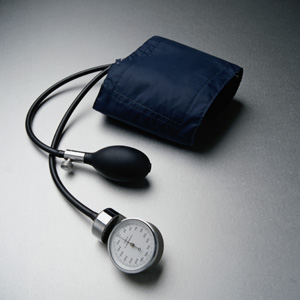by Dr. Robin Terranella —
When it comes to cardiovascular disease (CVD), most of us know that high blood pressure and cholesterol are important risk factors requiring control. However, a recent study, called JUPITER (Justification for the Use of statins in Primary prevention: an Intervention Trial Evaluating Rosuvastatin), found that more emphasis should be placed on CRP (c-reactive protein) levels. CRP is a marker of cardiovascular inflammation.
In the study, researchers examined people with: low or normal levels of cholesterol, no traditional risk for CVD and high CRP levels. Normally we would consider these people at relatively low risk of CVD and treatment unnecessary. However, in this study, one group was treated with 20 mg of Crestor and the other with placebo.
The active group had 44 percent fewer incidences of strokes and heart attacks, as compared to the placebo group. So while the study aimed to justify the use of statins therapy in subjects with normal cholesterol, it also proved cholesterol and blood pressure are not the only risks to look at.
The research from the JUPITER study suggests that traditional risk factors like cholesterol and blood pressure provide only a fraction of the answer to cardiovascular risk. We know that CRP can be viewed as a marker for arterial inflammation; what we did not know is the dramatic effect it can have in preventing heart attacks and strokes.
In theory, higher CRP levels reflect a higher level of inflammation within the artery. The higher inflammation creates instability within plaques (atherosclerotic), which leads to a greater incidence of heart attack and stroke. The JUPITER study definitely adds validity to this theory. It also tells us that CRP levels must be higher on the list of risk stratification. Moreover, research may eventually prove that CRP is just as important as blood pressure and cholesterol. The important questions now are how to implement this into clinical practice, and beyond statin drugs, are there other ways to lower CRP levels?
There are as many ways to lower CRP levels as there are causes for elevated CRP levels. Therefore, to lower the levels, we must find and treat the cause. Things like infections and flares in autoimmune disease cause transient elevations.
Chronic elevations of this inflammatory marker are more worrisome and can be caused by an unhealthy lifestyle (smoking, lack of exercise, high saturated fat diet). An example would be eating fried foods versus fresh fruits and vegetables. In addition to the high antioxidants that mitigate inflammation, there is a negative shift in essential fatty acids that goes along with fried food consumption. This shift acts as a catalyst to inflammation and promotes the process. So certainly there are lifestyle factors that influence CRP levels.
As the JUPITER study points out, statin drugs do a relatively good job at lowering CRP levels but also have their downsides. A multitude of natural oral substances do an excellent job at lowering CRP levels, as well. Regardless whether you use natural or statin drugs to lower CRP levels, it is clear they need to be reduced.
It is important to note that traditional over-the-counter anti-inflammatory medications should not be used for this problem, as they may make things worse.
Dr. Robin Terranella is a naturopathic physician and licensed acupuncturist who has a special interest and training in diabetes and cardiovascular disease. He cares for patients of all ages who have a variety of diseases and conditions. His offices are in Phoenix. 480-990-9355 or 480-529-3732.
Reprinted from AzNetNews, Volume 27, Number 6, December 2008/January 2009.






August 26, 2012
Blood pressure, Cholesterol, Health, Health Concerns, Heart disease, Inflammation